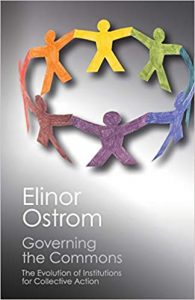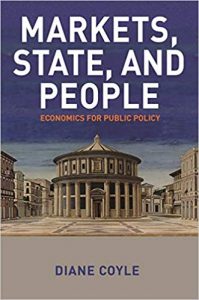I’ve been re-reading Elinor Ostrom. People have started to refer to a data commons. I don’t think the metaphor works but that doesn’t mean Ostrom’s design principles won’t be relevant. Anyway, I love this passage:
“Many policy prescriptions are themselves no more than metaphors. Both the centralizers and the privatizers frequently advocate over-simplified, idealized institutions – paradoxically, almost ‘institution-free’ institutions. An assertion that regulation is necessary tells us nothing about the way a central authority should be constituted, what authority it should have, how the limits on its authority should be maintained, how it will obtain information, or how its agents will be selected, motivated to do their work, and have their performances monitored and rewarded or sanctioned. An assertion that private property rights are necessary tells us nothing about how that bundle of rights is to be defined, how the various attributes of the goods involved will be measured, who will pay the costs of excluding non-owners from access, how conflicts over rights will be adjudicated…”
And there are informal norms of course, as well as formal rules and sanctions: it’s legally clear the restaurant owns the plates on which my meal is served but largely social assumptions and norms (rather than the law and police) that stop me walking out with them.
A lot – most? – economics students don’t read Ostrom. They should. She features in one chapter of my forthcoming public policy economics book, Markets, State and People. (Out in January 2020 – pre-order now!!)


